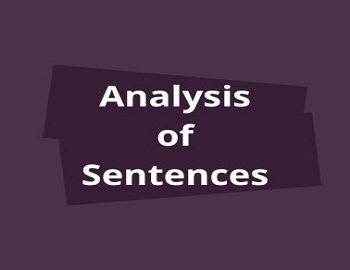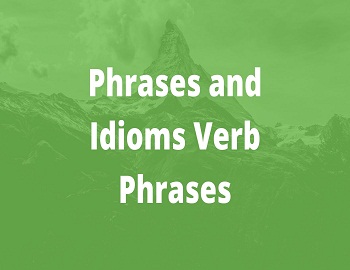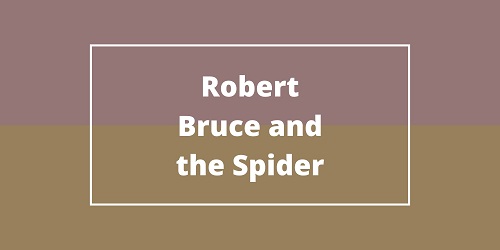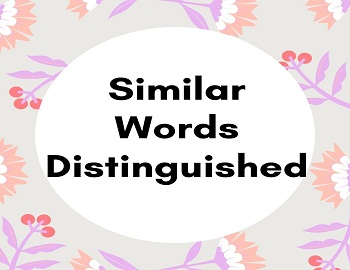Analysis of Sentences:
(1) Every sentence that we speak consists of two parts- the Subject (the person or thing about whom or which something is said) and the Predicate (what is said about the Subject). For instance, in the sentences-
- Students go to school.
- Birds fly in the sky.
Students is the Subject and go to school is the Predicate.
Birds is the Subject and fly in the sky is the Predicate.
(2) There are three types of sentences- simple, compound and complex.
(a) A Simple Sentence expresses one single thought and only one finite verb; as,
- I will not lend you any book.
The sentence has one Subject ‘I’ and one finite verb ‘will lend’.
(b) A Compound Sentence expresses more than one thought and has more than one finite verb joined by two or more Independent Co-ordinate Clauses; as,
- He came late but the superintendent admitted him into the hall.
The sentence consists of two Independent Co-ordinate Clauses; as,
- He came late.
- The superintendent admitted him into the hall.
They are joined by the Co-ordinate Conjunction ‘but’ each independent co-ordinate clause has a separate Subject and a Predicate.
(c) A Complex Sentence has only one Independent Clause (called the Principal Clause) and one or more Subordinate Clauses; as,
- He is so strong that he can easily beat his enemy.
In the above sentence, ‘He is so strong’ is the Principal Clause and ‘that he can easily beat his enemy’ is the Subordinate Clause. The Principal Clause makes good sense by itself and can stand independently. The subordinate Clause does not make complete sense by itself and depends upon the Principal Clause for the completion of its sense.
Note- A sentence having two or more Principal Clauses with one or more Subordinate Clauses is called a Mixed Sentence; as,
The world is a comedy to those (Princiapl Clause) who think (Subordinate Clause); but (Co-ordinate Conjunction) it is a tragedy to those (Principal Clause) who feel (Subordinate Clause).









Comments (No)